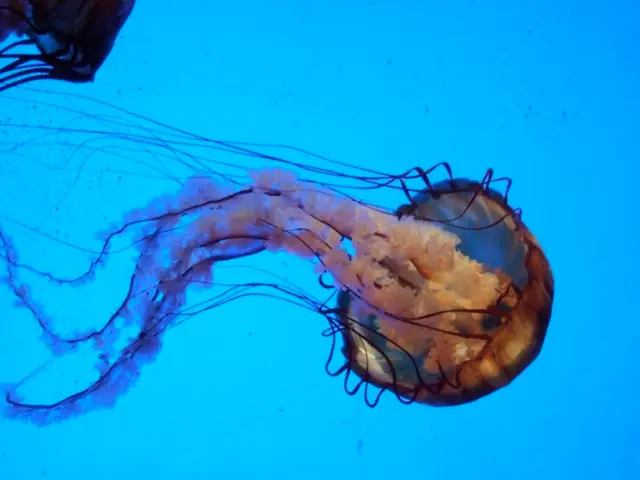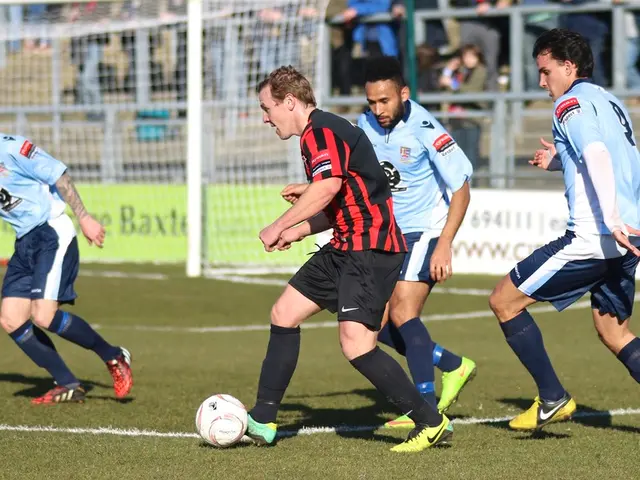Lawsuits Filed by Contestants Against Popular Reality Television Programs
In the world of entertainment, reality TV has become a staple, offering a glimpse into the lives of ordinary people as they navigate challenges and competitions. However, a growing body of evidence suggests that these shows may not always be as harmless as they seem.
Stacey Stillman, a contestant on the first season of Survivor, was eliminated and suspected her elimination was orchestrated behind the scenes by rivals. Although the lawsuit's outcome was never made public, US Magazine reported that CBS and Stillman ultimately settled out of court for an undisclosed amount. Similarly, Angela Preston, a contestant on America's Next Top Model, sued the show's executive producer Tyra Banks, alleging that she was disqualified after it was discovered that Preston had once been an escort. Preston won the show's Cycle 17 and all associated prizes, but received nothing, according to her lawsuit.
These incidents are not isolated cases. Substantial evidence indicates that reality TV shows can be exploitative, manipulative, and inhumane towards contestants.
Reality TV production often employs tactics such as sleep deprivation, isolation, and use of alcohol to artificially heighten drama and emotional breakdowns among contestants. These tactics amount to "psychological warfare" with documented harmful mental health consequences including anxiety, depression, PTSD, and even suicide in some cases.
Participants are often treated as disposable commodities, with no adequate informed consent or safeguards. This exploitation disproportionately targets vulnerable people and those from working-class backgrounds seeking social mobility.
Shows like The Biggest Loser have been exposed as inherently abusive and dehumanizing, involving public shaming, fatphobia, and extreme physical demands that cause lasting harm to contestants’ health and dignity. Many reality shows employ formats intentionally designed to humiliate or emotionally exploit contestants for the sake of ratings and viewer engagement.
Criticism and legal scrutiny have arisen around children’s participation in reality TV, highlighting the lack of adequate protections and the risk of emotional harm when children appear as entertainment commodities.
Shows like Love Is Blind and the Real Housewives franchise, Married to Medicine, and Beast Games belong to a genre known for engineered drama, conflict, and emotional manipulation. While direct scholarly or investigative reports on these specific series are limited, general industry analysis and contestant testimonies suggest manipulation and exploitative practices are common in such reality dating and social competition shows.
In October 2021, a news report stated that corrections of 25 problems at the Woodstock Lodge, found in May, had not been done, and that fire and safety inspections determined that three of the Lodge's cabins were unsafe, denying "human occupancy" pending a follow-up inspection.
In another case, the lawsuit against There's Something about Miriam involved six straight men who sued to prevent the broadcast of the show, in which they competed for the affection of a preoperative Mexican transsexual. The settlement included an apology by Brighter Pictures and a cash payment, with the amount reportedly somewhere in the range of $150,000 to $250,000 for each plaintiff.
As we continue to consume reality TV, it's essential to be aware of the potential exploitative and manipulative practices that may lie beneath the surface. While not every show or contestant may be affected equally, the structural practices behind many popular reality TV formats encourage this troubling dynamic.
- The history of reality TV shows isn't just about pop culture and entertainment; they have been embroiled in controversies, with several instances of manipulation and inhumane treatment towards contestants being exposed.
- A top 10 list of controversies in reality TV might include the lawsuit involving Stacey Stillman, a contestant on Survivor, who suspected her elimination was orchestrated, and Angela Preston, a contestant on America's Next Top Model, who alleged that she was disqualified after it was found that she had once been an escort.
- Social media platforms have become a domain for discussing and analyzing the mysteries surrounding reality TV shows, often fueling debates about the ethics of their production and the treatment of celebrities participating in them.
- The crime of exploitation extends to reality TV, as many shows are accused of using contestants as disposable commodities, subjecting them to psychologically damaging tactics like sleep deprivation, isolation, and use of alcohol for the sake of ratings and increased viewer engagement.
- As pop culture continues to evolve, it's crucial for viewers to remain vigilant about the potential exploitative and manipulative practices in reality TV shows, particularly those focused on dating and social competition, such as Love Is Blind, Real Housewives, Married to Medicine, and Beast Games.








